Middle English
This is a section is about Middle English
Here you will find a short overview of Middle English including its main writers and its influence on modern English and literature. The article was adapted from the Universal Cyclopedia.
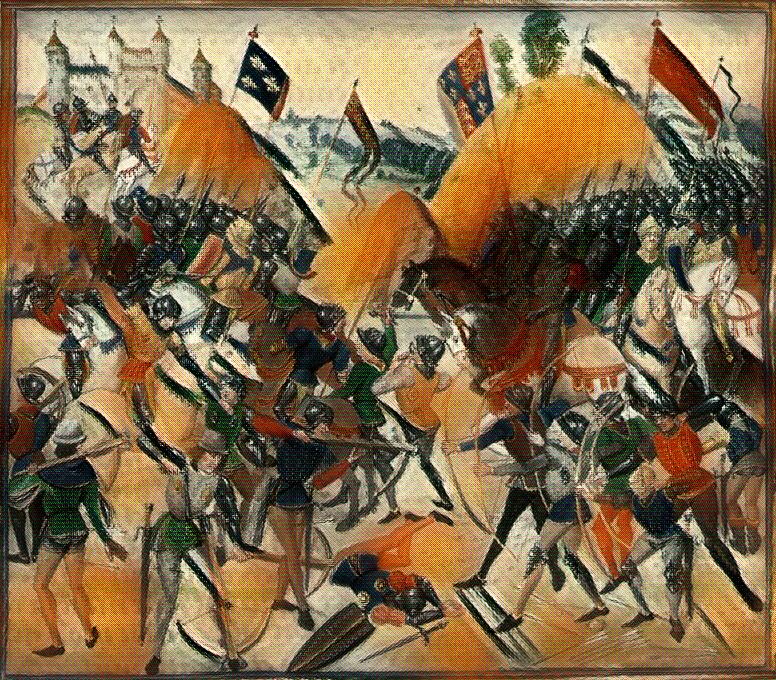
Middle English Facts
- Chaucer born 1340
- Spoken in England between the 12th and 15th century
- Grew out of Old English
- Middle English Literature is rare as most literature during the period was written in Norman French or Latin
- Was replaced by Modern English, based on a London dialect, after the growth of the printing press which standardized spelling and grammar.
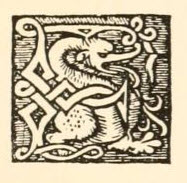
Chaucer's Canterbury Tales were written in Middle English, a pre-modern form of English. Although it shares many similarities with Modern English, Middle English had a considerably different vocabulary and pronunciation. This article describes the literature of Middle English, including its principal authors who were near contemporaries of Chaucer.
The Norman conquest not only made a break in the natural growth of English speech, but brought in new intellectual influences and novel literary forms. The English language was displaced from many of its former uses, From 106.6 to the middle of the fourteenth century the learned literature of the country was mostly in Latin and | the polite literature in French. English did not cease to | be a written tongue, but its extant remains down to the year 1200 are few and unimportant, if we except the continuation of the Anglo-Saxon Chronicle, which was carried on to 1154. After 1200 English came more and more into use in books, but mainly at first in translations and imitations from the French." The Normans were the most brilliant race of mediaeval Europe, and their literature reflected their chivalrous, adventurous character, their passion for prowess and courtesy, their love of pleasure and magnificence. A people fond of exploits and devoted to deeds of knight-errantry naturally took delight in the narrative of such deeds. Chronicles in Latin prose, history mingled with fiction and put into Norman-French verse (chansons de geste), and fabulous tales of marvelous adventure (romans d'aventures) were their favorite reading. These metrical romances or chivalry stories were the most characteristic contribution of the Normans to English poetry. They were sung or recited by minstrels and wandering jongleurs, and numbers of them were turned into English verse during the thirteenth, fourteenth, and fifteenth centuries. Some of the earliest English romances were Havelock the Dane, King Horn, and Sir Tristram. The heroes of some of these romances were from national history or legend, as Richard Coeur de Lion, Guy of Warwick, and Bevis of Hampton. others were of various times and places, as King Alexander. Sir Troilus of Troy, and Charlemagne. Still others were entirely fabulous, as in the romances of William of Palerme. The King of Tarsus, Amis and Amiloum, etc. The native alliterative verse was now generally abandoned for French meter and rhyme, the commonest form in the romances being the eight-syllabled couplet.
The favorite Anglo-Norman romance hero was that mythical Arthur of Britain whom Welsh legend had celebrated as the- most formidable enemy of the Saxon invaders. Arthur had figured among other fabulous British kings in the Historia Britonum, a Latin pseudo-chronicle produced about 1135 by Geoffrey of Monmouth, a Benedictine monk seemingly of Welsh descent. In 1155 the Norman Wace turned Geoffrey's history into French verse under the title Geste des Bretons (afterward known as Brut d'Engleterre, i.e. Chronicle of England).
Canterbury Tale Summaries
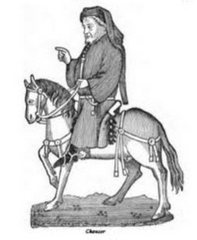
Geoffrey Chaucer
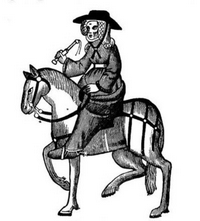
The Wife of Bath's Tale
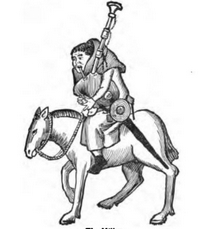
The Miller's Tale
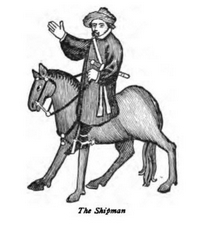
The Shipman's Tale
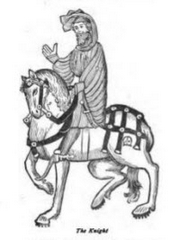
The Knight's Tale
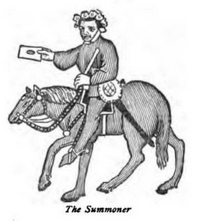
The Summoner's Tale
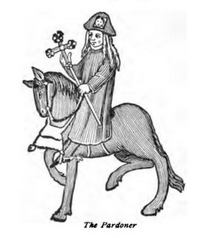
The Pardoner's Tale
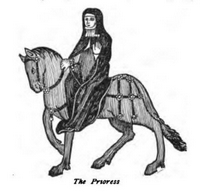
The Prioress's Tale
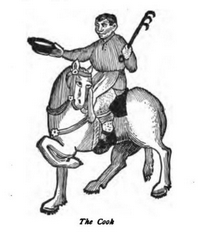
The Cook's Tale
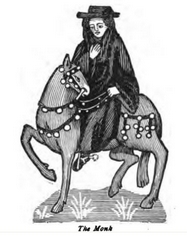
The Monk's Tale
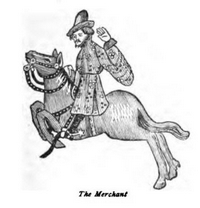
The Merchant's Tale
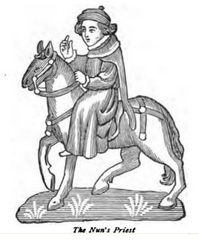
The Nun's Priest's Tale
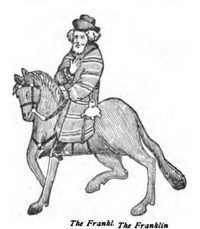
The Franklin's Tale
Main Page | Site Updates | Privacy Policy | Site Map | XML Map | RSS | Contact | About
Canterbury Tales
